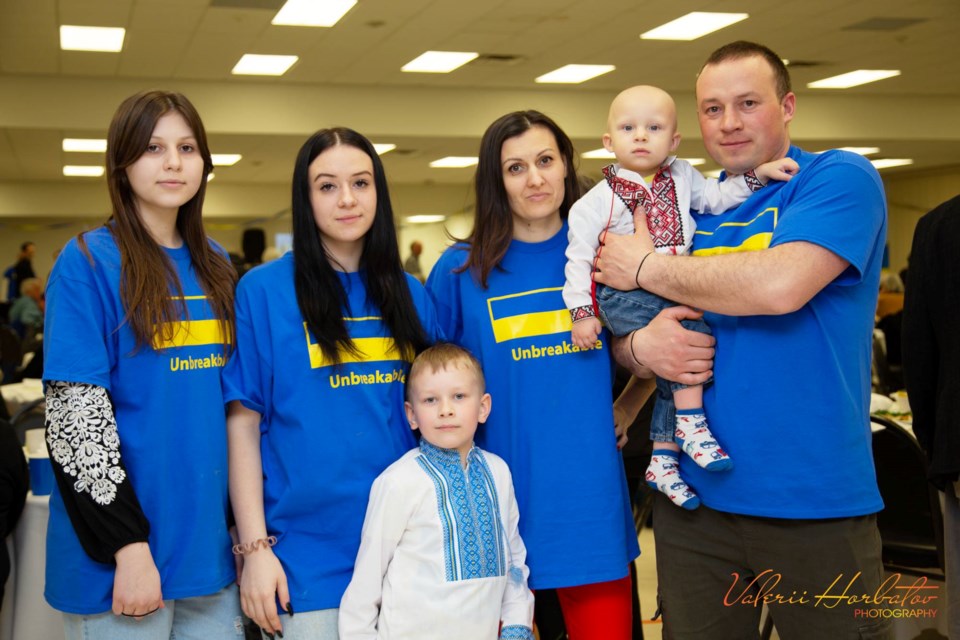Volodymyr “Myru” Yarmolyuk was on holiday with friends in the Canary Islands when Russia declared war on Ukraine last winter.
While on furlough, the 27-year-old had been travelling from his home in Odesa, throughout Ukraine and then around the globe, before a planned return to his work in logistics management.
But the Russian army’s invasion of Ukraine on Feb. 24, 2022, changed everything.
“When the war started, I had decided to stay on the island, and I was living there for six months,” said Yarmolyuk, speaking thoughtfully as he searched for the English words that would help him share his story.
“After, my friend — he is from my town, too — he offered me to go to Canada… because it’s a lot easier to go with someone who you know, easier to adapt in a new place.”
Last August, after securing his visa through the federal government’s Canada-Ukraine Authorization for Emergency Travel (CUAET) program, Yarmolyuk found himself en route to Canada, a path more than 148,000 Ukrainians displaced by the Russian war have followed to date.
But rather than landing in a larger metropolis, like Toronto, Montréal, or Vancouver, as so many of his brethren have, Yarmolyuk instead settled in the small rural town of Parry Sound.
“Other Ukrainians I know, a lot of people, they want to go to Toronto, because Toronto is a big city; if it’s a big city, it means a lot of opportunities,” Yarmolyuk said.
“But people don’t know English well, and they don’t understand that it is very expensive, and it’s very difficult to live there because rent is very expensive.”
By comparison, Parry Sound is a quiet, picturesque central Ontario town about a two-and-a-half-hour drive north of Toronto with a population of just 7,000 people.
Situated on the shores of Lake Huron’s Georgian Bay, smack dab in the middle of cottage country, it’s better known as a popular summer vacation destination than as an immigration hot spot.
But, since the war began, the community has welcomed, with quintessential northern hospitality, more than 80 Ukrainian women, men and children who have been displaced by the Russian war.
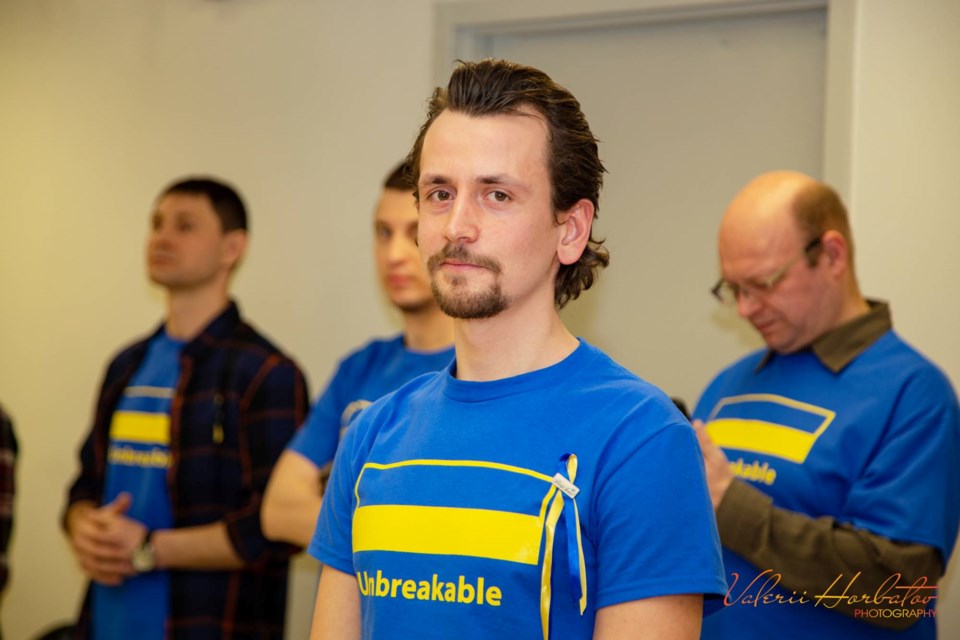
It’s truly been a community-wide effort.
After war broke out, with horrific images and stories inundating daily news feeds, Parry Sound resident Linda West felt pulled to take action. And she wasn’t the only one.
As more people in the tight-knit community expressed alarm at the events taking place in Ukraine, a town meeting was called to discuss what they could do, West recalled.
More than 100 people attended in person or tuned into the livestream and, in short order, the group decided to embark on a settlement program for Ukrainians fleeing the war.
“Part of it is because we have no government welcoming place; the closest is in North Bay (90 minutes away), and they’re supposed to help newcomers to the area,” West said.
“So if we were going to have any newcomers, we had to do it ourselves.”
Rotary Club of Parry Sound, of which West is president, took the lead on the initiative, connecting via Facebook with Ukrainians looking to leave Ukraine.
Club members educated themselves on immigration requirements and how to fill out the appropriate paperwork, lining up Ukrainians with jobs in Parry Sound.
Citizens collected clothing, food and furniture, and the owner of the local train station donated the space for storage. Homeowners and landlords provided temporary shelter, with months of free rent. An additional $60,000 was collected through fundraising efforts, which has helped to fill in the gaps.
“We basically have tried to provide (newcomers) with at least one month of free rent and free food, and then it’s on an as-needed basis,” West said.
Many of the displaced Ukrainians are younger women and children, as most of the men have stayed in Ukraine to help fight, she noted.
Everyone able to work has found a job, and many newcomers already speak of pursuing permanent residency.
“The vast majority of ours have come out of the south and the east (parts of Ukraine), and they know their towns are destroyed, they know their home is destroyed, they know there’s no going back to what they used to have, so it makes it hard,” West said.
“And knowing that the people they would go back to aren’t there — it’s not just the infrastructure; there’s nobody living in the town they used to live in.”
Under the CUAET program, announced by the federal government last March, Ukrainians can obtain a special visa that allows them to live in Canada for up to three years and includes an open work permit. That means they can start working shortly after arrival with no waiting period.
As the economic development officer for the Town of Parry Sound, Vladimir Shehovtsov has played an integral role in matching new arrivals with vacant roles.
Though he'd dabbled in out-of-town recruitment since taking the job in 2018, Shehovtsov said he got more heavily involved only after the war began. The local manufacturing and hospitality sectors have been particularly challenged in finding employees, as most businesses have workforce gaps to fill, he noted.
This has also been a personal endeavour for Shehovtsov, who is Ukrainian by birth but immigrated to the U.S. in 1992 before settling in Canada nine years later.
He speaks Ukrainian, Russian and English fluently, and retains dual citizenship for both Canada and his home country, where he still has family, friends and business contacts.
“This war affected me very, very deeply as well on a personal level,” Shehovtsov said.
Displaced Ukrainians arriving under CUAET receive a one-time payment of $3,000 per adult and $1,500 per child, but that only goes so far, Shehovtsov said. Newcomers very quickly find they need to secure work in order to support themselves in their new country.
"When I familiarized myself with the details of this very unique visa program, I thought, 'Why not direct some of them to Parry Sound?'"
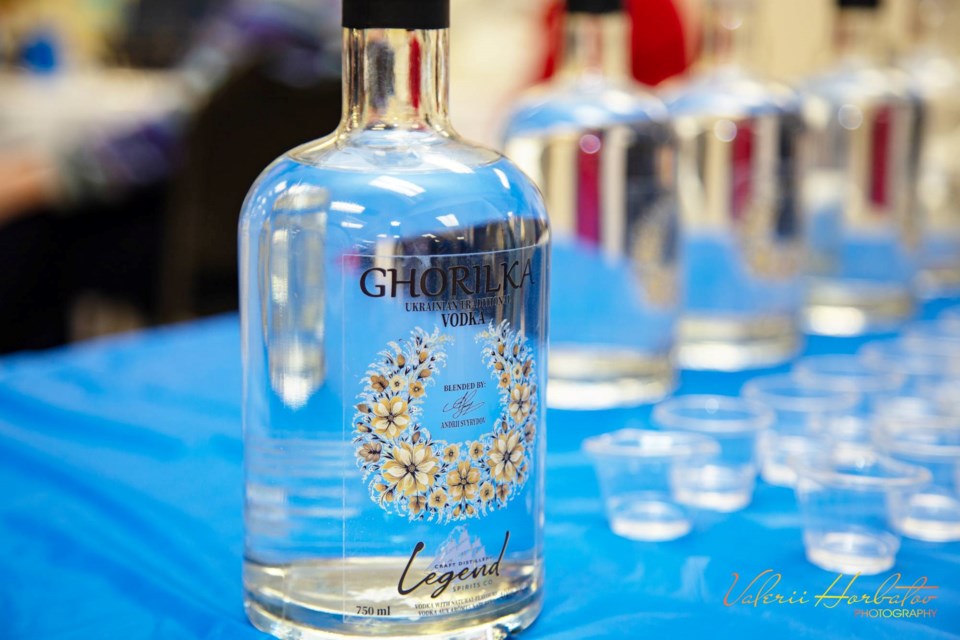
Last spring, he surveyed local employers to get a bead on their current labour requirements.
One boat manufacturer said he could use up to a dozen welders, while a food processor cited an engineer and assembly line workers among its needs. Hospitality companies said they required everything from cooks to kitchen staff to waitresses and more.
“After I assembled a list of open positions in our area, I started to connect with Ukrainians on social media and through personal contacts, and just started to inform them about Parry Sound, what’s available here, and the specifics of the CUAET program,” said Shehovtsov.
He later partnered with Linda West to combine their efforts.
“Basically, by word of mouth, people started sending résumés our way," said Shehovtsov.
Before the war, the average salary in Ukraine was about US$500 per month, he noted, while a local welder in Parry Sound can currently command $30 or $35 an hour.
Combine that with the CUAET program, which provides a simplified path to permanent residency, and relocating to Canada seems like a “no-brainer” to many Ukrainians, Shehovtsov said.
In a town that's largely populated by older generations, the influx of young, new workers has rejuvenated its economy.
Local employers have been more than happy to have them.
“All of them tell me, ‘Bring us more Ukrainians,’” Shehovtsov laughed. “They are very hardworking people, and also they are very motivated to perform well at their jobs because many of them… send money back to Ukraine to their friends and relatives; for example, elderly or sick family members who are unable to leave the country for various reasons.”
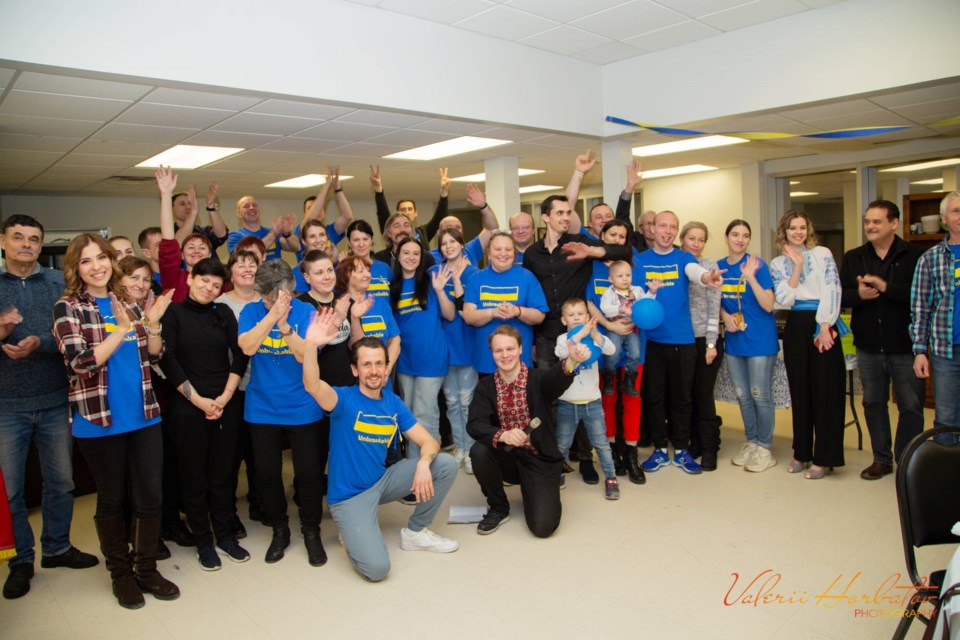
The support the town has put in place gives newcomers a strong start to their new lives in Parry Sound, but the process of adapting is complex and ongoing.
That’s where the YMCA of Simcoe/Muskoka comes in.
Typically, the organization’s programming focuses on helping job seekers find work, things like writing résumés, honing their interview techniques, upgrading their skills, or matching students with summer jobs.
But over the last year, as more and more newcomers arrived in the area, the organization introduced a number of special services catering to the area’s new Ukrainian demographic.
“We would have people that have just fled the war, arrived here, and within three, four days they’re here saying, ‘I need a job right now,’ because they need to be able to pay rent,” said Lisa Cook, the YMCA’s team leader of employment services.
Partnering with local employers, the YMCA has placed newcomers in jobs as closely related to their previous work as possible. More than just finding them a job to pay the bills, Cook said, the organization wants newcomers to find work that lines up with their existing skill sets and helps them build a fulfilling life in Parry Sound.
“It’s really creating a plan for them, and that plan is not a two, three, four-month plan,” she said. “It’s a two, three-year plan.”
Along with job-matching, the YMCA prioritizes English-language classes to help newcomers navigate daily life.
While all newcomers speak Ukrainian and Russian, Cook noted, fewer are fluent in English, and newcomers have varying language competency levels.
At the outset, the YMCA trained two staff members to begin offering English as a second language (ESL) courses, and later hired an ESL teacher, newly arrived from Ukraine, who is also fluent in English and Mandarin.
Local employers who have hired newcomers can even qualify for a stipend to cover some costs while their new employees attend twice-weekly virtual English classes so they can improve their language skills.
More recently, the province approved additional funding so that newcomers with higher English proficiency can further advance their skills in preparation to transition into an apprenticeship or other skilled trade, enabling them to have a long-term residency in Canada.
Cook said the participation of local employers has been “remarkable,” with most willing to take whatever measures are required to help their new employees succeed.
The overall impact to Parry Sound’s labour force has been impressive.
As in other communities, the town's struggle to attract workers predates the pandemic, but the arrival of COVID-19 in 2020 exacerbated the problem.
Newcomers arriving from Ukraine are excited about the opportunities, especially in the skilled trades, and are eager to take advantage of them.
“This year, thanks to all the newcomers that have come into the community, we’ve actually now returned back to the same number of people looking for work and putting people into jobs that we had back in 2017 and 2018, which is incredible,” Cook said.
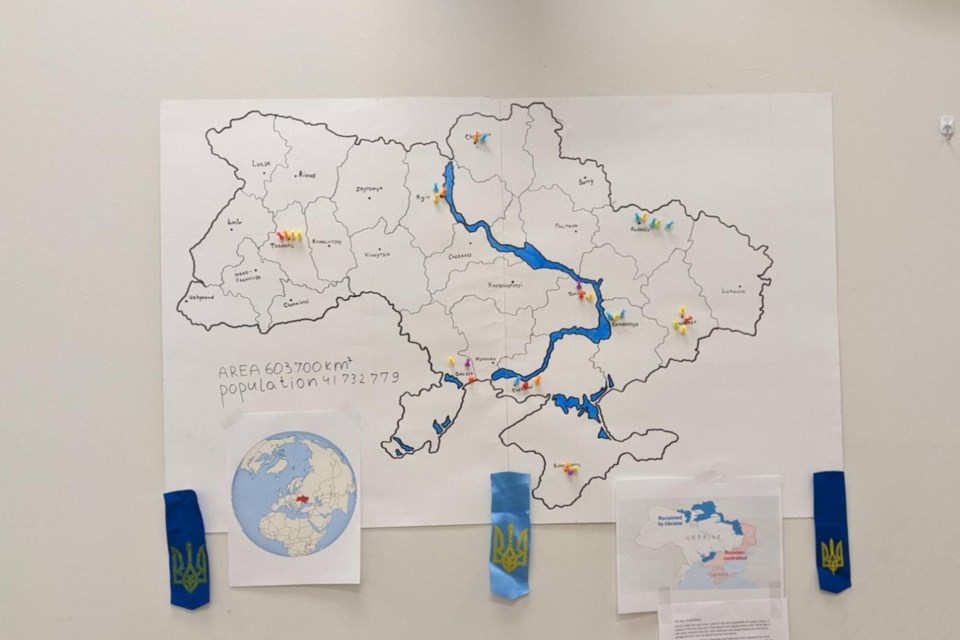
Though the settlement program has been an overwhelming success, it’s paramount to remember that the people arriving in Parry Sound have fled a war zone, and they carry with them the shock and trauma of that experience.
Many have lost friends and loved ones, their homes and communities have been destroyed, and they face an uncertain future.
Those who have worked closely with the newcomers want to continue bringing more people to Parry Sound, but additional support is needed.
Rotary president Linda West would like to see the federal government provide family benefits for newcomers.
Not only would it help them better provide for their families while they’re still getting settled, she said, but it would boost their chance of long-term success in their new country.
Otherwise, she’s in favour continuing the initiative for as long as Ukrainians want to come.
“It’s been (wonderful) meeting the Ukrainians and getting to know them,” West said. “It’s a pleasure and an honour to help out people that are that high-spirited and have the tenacity to keep going in spite of all this.”
Lisa Cook agrees.
“It’s been a privilege and humbling to know every one of the individuals that I’ve crossed paths with,” she said.
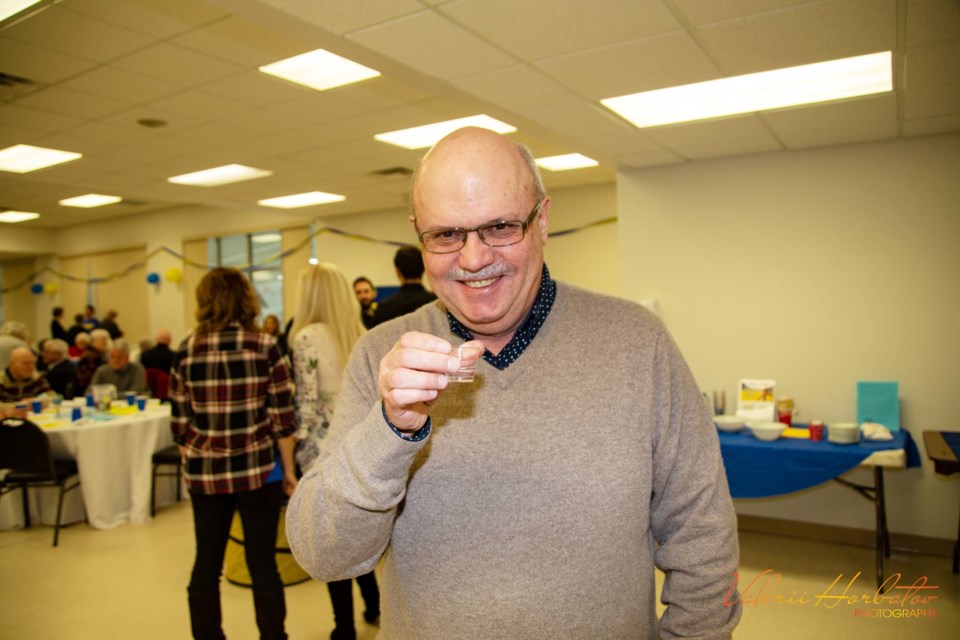
Cook estimates she’s dealt directly with about 75 per cent of the newcomers through her work with the YMCA.
“It’s humbling because they’re all so strong, and it’s beyond words, just in terms of what they all — every single one of them — carry with them, and they just forge ahead and do what they need to do.”
Vladimir Shehovtsov is eager, too, to see more of his compatriots call Parry Sound home. But the town is quickly running out of space to put them.
Any and all affordable housing is occupied, and in order to bring in more newcomers, new structures have to be built. Ideally, Shehovtsov said, the federal government would provide funding to help municipalities offset the cost of adding to their housing stock.
He also strongly favours making permanent the Rural and Northern Immigration Pilot (RNIP), set to conclude this year. Originally, it was designed to attract newcomers to the North's big five cities — North Bay, Thunder Bay, Timmins, Sault Ste. Marie and Sudbury — but Shehovtsov believes an expansion of the program could benefit benot Parry Sound and other small communities across the North.
“I see how well these Ukrainians are integrating in Parry Sound and I'm happy for them. But I'm also happy for the community, because they are all employed, so the companies where they work are making more revenue, and that revenue either goes via taxes or back to the community,” he said.
“So everybody's winning in this situation, from Ukrainians through businesses and through the whole economy and the whole country, I think.”
Since arriving in town last August, Myru Yarmolyuk has led his fellow newcomers in forming a new branch of the Rotary Club, Rotaract, which held its first big event in early March.
Dubbed “Discover Ukraine,” the cultural evening featured a traditional, multi-course dinner, folk music, ghorilka (Ukrainian vodka) tasting, and information about the culture and history of Ukraine, including the geopolitical climate that prompted the current war.
The sold-out event was a success, raising $14,000 for Ukrainian newcomers and generating endless goodwill between them and their adopted community.
When asked about his long-term plans in Canada, Yarmolyuk paused.
“It’s a difficult question, because I would like to know the future, but I don’t know,” he said.
His family, including his father, who's serving in the Ukrainian military, remains in Ukraine, but they are currently in a safe place, he said.
Yarmolyuk would like his 15-year-old brother to come to Canada where he can get a good education and find work, things that will be difficult to come by in post-war Ukraine.
But until there is more certainty for him and others like him, his future goals are simple: improve his English, continue earning money via his job in logistics, and connect with his new Parry Sound neighbours.
“I’m really grateful for people who help other people, other Ukrainians,” he said. “It’s really important for us.
